What is an Electronics Contract Manufacturer (ECM)?
An Electronics Contract Manufacturer (ECM) is a company that specializes in designing, manufacturing, testing, and delivering electronic components and assemblies for other companies, known as Original Equipment Manufacturers (OEMs). ECMs provide a wide range of services, from prototype development to full-scale production, enabling OEMs to focus on their core competencies while outsourcing the manufacturing process.
The Role of ECMs in the Electronics Industry
ECMs play a crucial role in the electronics industry by offering cost-effective solutions for OEMs. By outsourcing the manufacturing process to an ECM, OEMs can:
- Reduce capital expenditure on manufacturing facilities and equipment
- Access specialized expertise and technologies
- Improve supply chain management and inventory control
- Achieve faster time-to-market for their products
- Scale production up or down based on demand
Services Offered by Electronics Contract Manufacturers
1. Design and Engineering
Many ECMs offer design and engineering services to help OEMs develop their products from concept to reality. These services may include:
- Schematic design
- PCB layout
- Component selection
- Prototype development
- Design for Manufacturability (DFM) analysis
2. Printed Circuit Board Assembly (PCBA)
PCBA is the process of assembling electronic components onto a printed circuit board (PCB). ECMs typically offer both surface mount technology (SMT) and through-hole assembly services.
SMT Assembly
SMT is the most common method of assembling PCBs, where components are mounted directly onto the surface of the board. The process involves:
- Solder paste application
- Component placement
- Reflow soldering
Through-Hole Assembly
Through-hole assembly involves inserting component leads through holes in the PCB and soldering them on the opposite side. This method is typically used for larger components or those that require greater mechanical strength.
3. Cable and Wire Harness Assembly
ECMs also offer cable and wire harness assembly services, which involve cutting, stripping, crimping, and soldering wires and cables to create interconnects between electronic components or subassemblies.
4. Box Build Assembly
Box build assembly is the process of integrating electronic and mechanical components into a final product, such as a complete device or system. This service may include:
- Subassembly integration
- Enclosure fabrication and assembly
- Final product testing and quality control
5. Testing and Quality Assurance
ECMs employ various testing and quality assurance methods to ensure that the products they manufacture meet the required specifications and standards. These may include:
- In-circuit testing (ICT)
- Functional testing
- Boundary scan testing
- X-ray inspection
- Automated optical inspection (AOI)
Advantages of Working with an Electronics Contract Manufacturer
1. Cost Savings
One of the primary advantages of working with an ECM is cost savings. By outsourcing the manufacturing process, OEMs can avoid the high costs associated with setting up and maintaining their own production facilities, purchasing equipment, and hiring and training personnel.
2. Access to Expertise and Technology
ECMs invest in state-of-the-art equipment and employ experienced engineers and technicians who are knowledgeable in the latest manufacturing technologies and processes. This allows OEMs to access specialized expertise and capabilities that they may not have in-house.
3. Improved Supply Chain Management
ECMs have established relationships with component suppliers and can often secure better pricing and lead times due to their higher volume purchases. They also have systems in place for managing inventory, ensuring that components are available when needed and minimizing the risk of obsolescence.
4. Faster Time-to-Market
By outsourcing the manufacturing process to an ECM, OEMs can significantly reduce the time required to bring a product to market. ECMs have streamlined processes and can often provide faster turnaround times than an OEM could achieve on their own.
5. Scalability and Flexibility
ECMs can quickly scale production up or down based on an OEM’s changing needs. This flexibility allows OEMs to respond to market demands without the risk of overinvesting in production capacity or being left with excess inventory.

Choosing the Right Electronics Contract Manufacturer
When selecting an ECM, OEMs should consider several factors to ensure a successful partnership:
1. Technical Capabilities
Ensure that the ECM has the necessary equipment, expertise, and processes to manufacture your product to the required specifications and quality standards.
2. Industry Experience
Look for an ECM that has experience working with products similar to yours and understands the unique requirements of your industry, such as regulatory compliance or environmental considerations.
3. Financial Stability
Choose an ECM that has a strong financial foundation and can demonstrate long-term stability. This will minimize the risk of disruptions to your supply chain due to financial issues.
4. Communication and Collaboration
Effective communication and collaboration are essential for a successful OEM-ECM Partnership. Look for an ECM that is responsive, transparent, and willing to work closely with your team throughout the manufacturing process.
5. Location and Logistics
Consider the location of the ECM and the logistics involved in shipping components and finished products. Proximity to your target markets and the availability of reliable transportation options can impact lead times and shipping costs.
The Future of Electronics Contract Manufacturing
The electronics industry is constantly evolving, and ECMs must adapt to stay competitive. Some of the trends shaping the future of electronics contract manufacturing include:
1. Industry 4.0 and Smart Manufacturing
Industry 4.0 technologies, such as the Internet of Things (IoT), artificial intelligence (AI), and robotics, are transforming the manufacturing landscape. ECMs are investing in these technologies to improve efficiency, quality, and flexibility.
2. Miniaturization and High-Density Packaging
As electronic devices become smaller and more complex, ECMs must develop new techniques for assembling high-density PCBs and packaging components in ever-smaller form factors.
3. Sustainable and Eco-Friendly Practices
There is a growing demand for electronics products that are sustainable and environmentally friendly. ECMs are adopting practices such as using renewable energy, reducing waste, and implementing circular economy principles to meet these expectations.
4. Supply Chain Resilience
The COVID-19 pandemic has highlighted the importance of supply chain resilience. ECMs are diversifying their supplier networks and investing in risk management strategies to minimize the impact of disruptions.
5. Skilled Workforce Development
As manufacturing technologies become more complex, ECMs must invest in training and development programs to ensure that their workforce has the necessary skills to operate and maintain advanced equipment.
Frequently Asked Questions (FAQ)
1. What is the difference between an ECM and an OEM?
An Original Equipment Manufacturer (OEM) is a company that designs and sells products under its own brand name. An Electronics Contract Manufacturer (ECM) is a company that manufactures products designed by OEMs.
2. How do I choose the right ECM for my product?
When choosing an ECM, consider factors such as technical capabilities, industry experience, financial stability, communication and collaboration, and location and logistics. It’s important to find an ECM that can meet your specific product requirements and has a track record of success in your industry.
3. What are the benefits of outsourcing manufacturing to an ECM?
Outsourcing manufacturing to an ECM can provide cost savings, access to specialized expertise and technology, improved supply chain management, faster time-to-market, and increased scalability and flexibility.
4. How can I ensure the quality of products manufactured by an ECM?
To ensure product quality, work closely with your ECM to establish clear specifications and quality standards. Implement a robust quality assurance program that includes regular audits, testing, and inspection of products at various stages of the manufacturing process.
5. What should I look for in an ECM’s supply chain management capabilities?
Look for an ECM that has established relationships with reputable component suppliers, a proven track record of managing inventory effectively, and the ability to adapt to changes in demand. The ECM should also have risk management strategies in place to minimize the impact of supply chain disruptions.
Conclusion
Electronics Contract Manufacturers play a vital role in the electronics industry, providing OEMs with cost-effective, flexible, and scalable manufacturing solutions. By outsourcing the manufacturing process to an ECM, OEMs can focus on their core competencies while leveraging the expertise and capabilities of a specialized manufacturing partner.
As the electronics industry continues to evolve, ECMs must adapt to new technologies, market demands, and supply chain challenges. By investing in advanced manufacturing techniques, skilled workforce development, and sustainable practices, ECMs can position themselves as valuable partners to OEMs in the years to come.
When selecting an ECM, OEMs should carefully consider factors such as technical capabilities, industry experience, financial stability, and communication and collaboration. By choosing the right ECM and establishing a strong partnership based on trust and shared goals, OEMs can achieve success in an increasingly competitive and dynamic market.
| Characteristic | ECM | OEM |
|---|---|---|
| Product Design | Manufactures products designed by OEMs | Designs and sells products under its own brand name |
| Manufacturing Focus | Specializes in manufacturing electronic components and assemblies | May outsource manufacturing to focus on core competencies |
| Equipment and Facilities | Invests in state-of-the-art manufacturing equipment and facilities | May have limited in-house manufacturing capabilities |
| Expertise and Technology | Employs experienced engineers and technicians; invests in advanced manufacturing technologies | May lack specialized manufacturing expertise and technologies |
| Supply Chain Management | Manages component procurement, inventory, and logistics for multiple OEMs | May have limited control over supply chain and be vulnerable to disruptions |
| Scalability and Flexibility | Can quickly scale production up or down based on OEM demand | May have limited ability to respond to changes in demand |
Table 1: Comparison of ECMs and OEMs
In summary, Electronics Contract Manufacturers are essential partners for Original Equipment Manufacturers in the electronics industry. By providing specialized manufacturing services, ECMs enable OEMs to bring innovative products to market faster, more cost-effectively, and with greater flexibility. As the industry continues to evolve, the successful collaboration between ECMs and OEMs will be crucial to driving growth, innovation, and sustainability in the electronics sector.
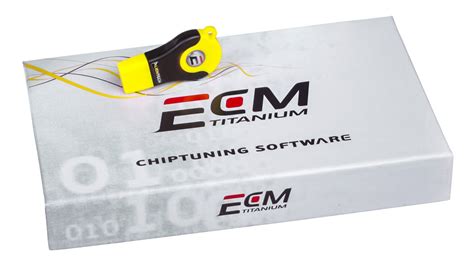

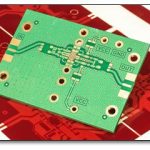
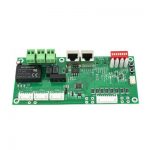
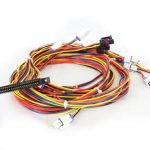
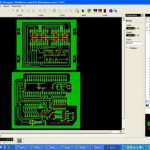
Leave a Reply